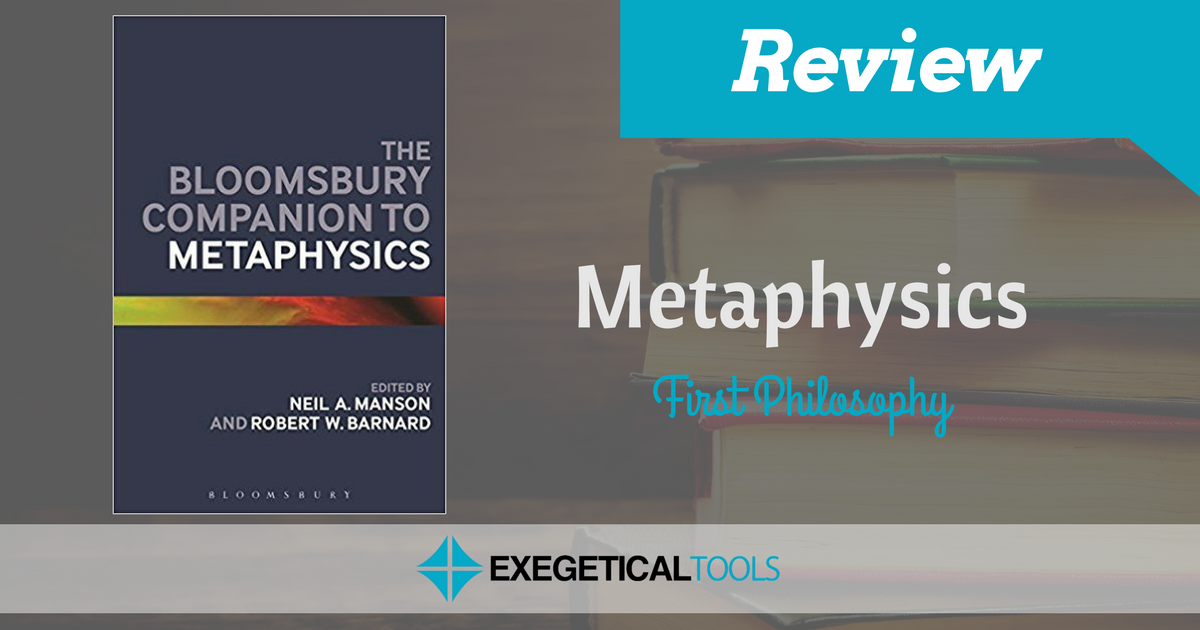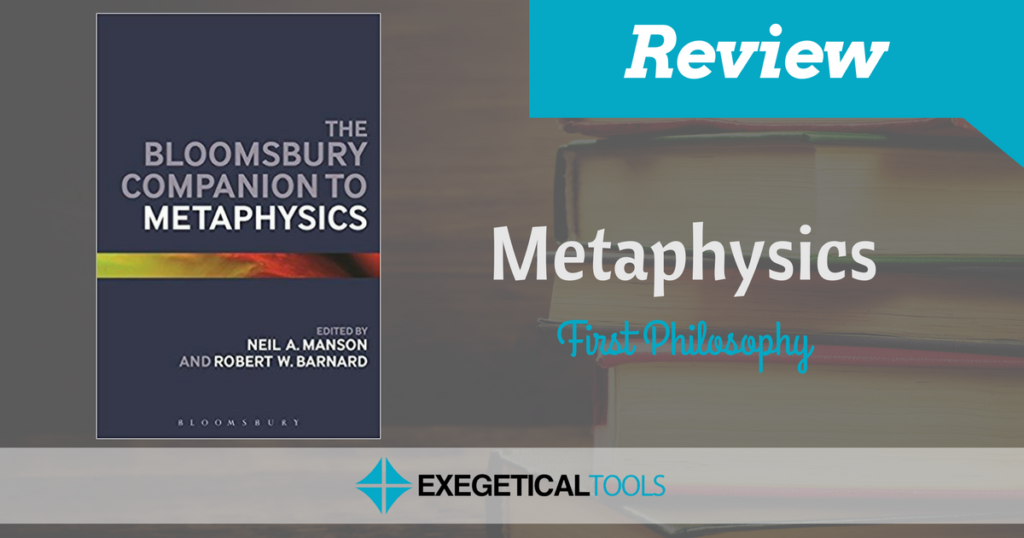The Bloomsbury Companion to Metaphysics, eds. Manson and Barnard (Bloomsbury, 2015), 384.
Metaphysics is often obscure, but foundational for theology. The study of reality undergirds how we view God, creation, and everything else. Most of us likely have an implicit metaphysic, but students of the Bible would be helped immensely by understanding the basic categories of thought in the history of metaphysics.
This companion is exactly what I wanted. The introduction covers all the chapters by summarizing them briefly, which is always useful so you can know if an essay is worth reading. The essays then cover the following topics: research problems and methods; modality; universals and abstract objects; naturalism and physicalism; mind; material constitution; endurantism and perdurantism; personal identity; free will; God; new directions. The table of contents nicely includes the section headings as well so you can get an even better view of what the chapters are about.
A layout of this sort is useful insofar as it addresses all the current issues in metaphysics. Some of these will be of philosophical interest only, such as endurantism and perdurantism. Such an issue won’t surface in exegesis! Other issues, though, such as free will, God, and universals are common issues in theology. The first two are obviously important, but even on the third, there has been plenty of debate in monographs and journals on the metaphysics of Hebrews–did he borrow Platonic metaphysics? One needs to know what universals are to be able to enter this debate.
Two drawbacks to this layout are that it does not take a historical or developmental view of metaphysics, nor does it emphasize metaphysics as the foundational of all other philosophical topics. E.g., one’s position on universals will greatly affect one’s ethical theory. Integrating the current topics in metaphysics with a developmental perspective and with the other topics in philosophy would have been more preferable for me, but there are other books for that.
At the end of the book are three useful indices: an annotated bibliography (25 pages), a research guide (5 pages), and an index of key terms and concepts (15 pages). The annotated bibliographies are divided by chapter and are very helpful. The research guide includes resources for entering the field, including blogs, encyclopedias, anthologies, and more. The index of key terms is also invaluable for students trying to enter into this often-obscure field.
Overall, I appreciate that the editors brought this volume together in the way they did. This is the kind of companion I would actually read cover to cover. I would also supplement it with a book covering the development of thought on metaphysics, for which I recommend Grondin’s introduction. These two resources together would give you a solid overview of the field, after which you could move into reading the primary sources for yourself.
Buy the Bloomsbury Companion here on Amazon.


